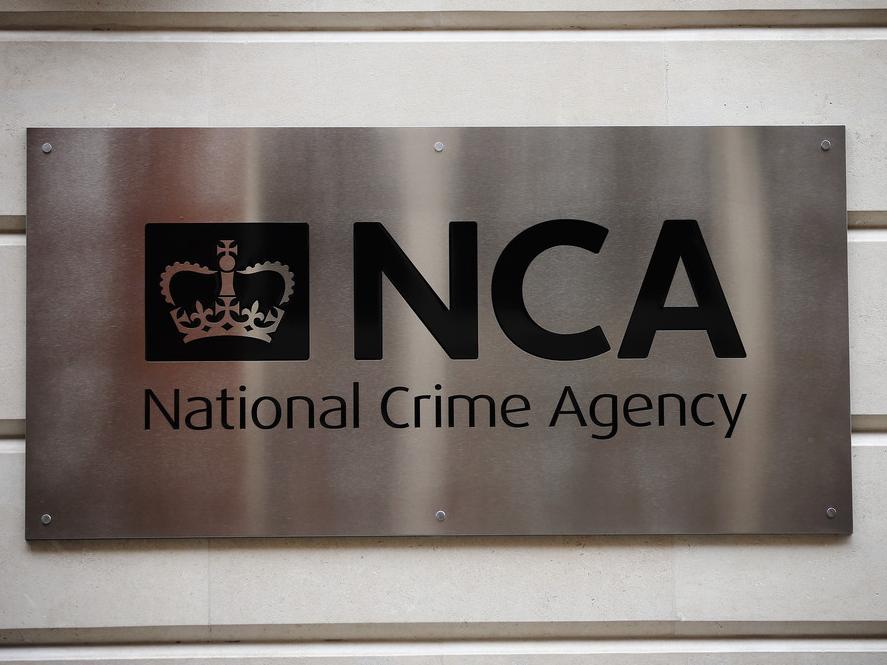
Brian Sims
Editor

Brian Sims
Editor
CRIMINALS ARE exploiting advances in technology to drive serious and organised crime. That’s the considered view of the National Crime Agency (NCA) as outlined in the 2021 National Strategic Assessment of Serious and Organised Crime, with increased online usage leading to a rise in offending.

The 55-page report uses intelligence from across law enforcement, Government, the third sector and private industry to set out the UK’s understanding of the threat posed by organised criminals.
The National Strategic Assessment starkly sets out the threat that organised crime poses to the UK. The smuggling and distribution of guns and drugs, cross-border trafficking and smuggling of people, the exploitation of individuals, industrial scale frauds, ransomware attacks and the laundering of dirty money in and through the UK are causing harm to communities on a significant scale.
The past year has seen huge changes in UK society. COVID-19 has changed the landscape and the National Strategic Assessment duly highlights that organised criminals have adapted their methods to survive. In particular, offenders have turned to online spaces, increasingly using emerging technologies to commit crimes at scale and avoid detection.
Ransomware attacks have increased in frequency and impact. It’s estimated that 50% of all ransomware attacks included a threat to publish stolen data. Over the last year there were £3 billion of estimated fraud losses for UK individuals and businesses, but an accurate figure is constrained by significant under-reporting.
The Dark Web remained a market where large numbers of offenders traded illegal commodities such as firearms and drugs. Offenders have increasingly turned to both specialist and commercially available encryption tools to hide their communications. Criminals have increasingly used cryptocurrencies to facilitate money laundering, at least in part because the pandemic made it harder to move cash.
NCA director general Dame Lynne Owens said: “The National Crime Agency, together with our operational partners, is disrupting more and more serious and organised criminality. As our latest assessment shows, the threat to the UK from crime groups supplying drugs and firearms, trafficking vulnerable people and defrauding individuals and businesses has proved to be resilient, including during the pandemic. COVID has shown these criminals for what they are. In short, corrupt and exploitative.”
Owens continued: “This year’s National Strategic Assessment shows how the criminal exploitation of technology is central to the threat. For law enforcement, the front line must now be online as well as on our streets.”
Also, Owens explained: “Whether in the real world or online, the National Crime Agency will continue to identify and pursue the criminals who pose the biggest risks to our families, communities, the integrity of the state and its prosperity. No-one involved in serious and organised crime in the UK should consider themselves beyond our reach.”
Numbers involved
This year, the National Strategic Assessment includes an update on the numbers of individuals involved in organised crime in the UK. The latest assessment shows that a minimum of 69,281 individuals in the UK are involved in such criminality across all threats except child sexual abuse.
While the National Strategic Assessment highlights that the environment in which the National Crime Agency and partners operate has become more challenging as criminals adapted during the pandemic and exploited rapid advances in technology, the National Crime Agency has also had its most successful 12 months for disrupting key threats.
The National Crime Agency’s leadership of Operation Venetic – the UK law enforcement’s response to the takedown of encrypted comms platform EncroChat – led to 1,550 arrests, the seizure of 5.8 tonnes of class A and B drugs, almost £57 millon in criminal cash, 115 firearms and 2,879 rounds of ammunition.
The National Crime Agency has been responsible for the seizure, forfeiting or restraining of more than £112 million and 145 tonnes of drugs globally as well as the seizure of 416 firearms abroad from individuals and supply networks with the capability/intent to import firearms into the UK.
Further, it has stopped a cyber extortion attempt and bomb threat against the NHS by a criminal seeking a £10 million Bitcoin ransom. He was caught and jailed. There have been 90 investigations into modern slavery and human trafficking with 100 suspects arrested and 475 victims identified, as well as a 7% jump in the number of rescued trafficked victims from 657 in 2019-2020 to 701 in 2020-2021. Organised immigration crime arrests were up to 103 in 2020-2021 compared to 69 in 2019-2020.
Sustaining the response
The National Crime Agency will be unrelenting in its pursuit of the threat, developing the technology and skills required to equip its officers and partners to tackle the individuals and groups that pose the greatest harm to the UK.
Lynne Owens commented: “Over the next year, the National Crime Agency will continue to adapt, embracing ever stronger collaboration with partners, employing innovative approaches to intelligence collection and deploying our full range of capabilities to disrupt high-harm criminality impacting on the UK. However, while the National Crime Agency will continue to lead the fight to cut serious and organised crime, it’s imperative that technology and social media companies match this intensity, building in safety by design and closing down all avenues for offenders to exploit their platforms.”
*Download the National Strategic Assessment of Serious and Organised Crime
Dorset House
64 High Street
East Grinstead
RH19 3DE
UNITED KINGDOM
01342 31 4300